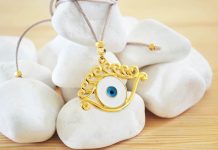
The subject of dreams has been somewhat controversial when it comes to their significance, yet we still know far less about sleep and dreaming than science would like to openly admit. While neurology and neuroscience studies focus on the mechanics of sleep, both psychology and metaphysics traditionally focus on the underlying meanings of dreams. Many psychotherapists know that understanding your dreams can help you better manage your life. Yet, are volumes of books on dream symbols really helpful for the examination of the unconscious messages sent to us when we’re in REM sleep? Probably not.
The Collective Unconscious and Dream Archetypes
While some symbols are quite universal, dreams are a very personal experience. While the pioneer psychotherapist Carl Jung outlined a few basic archetypes that are universal to us all in a collective fashion, he also made it clear that there really isn’t a cookbook-style way to apply a guide to most of what we experience in our dreams. In fact, he said that powerful archetypal dreams usually only arise from our unconscious when we are facing profound changes or a shift in the direction of our lives. Otherwise, the visions we see are personal to the individual.
Personalized Dreams and You
If you love dogs, a dream with a cuddly puppy might be comforting to you and emotionally positive. However, to someone who has survived a severe dog attack or has a general fear of dogs, a canine-filled dream might actually be a terrifying nightmare. While you might find any variety of interpretations for a dog in a book with interpretations, what the dog means to you and your subconscious isn’t going to fit into a single one-size-fits-all mold.
Does this mean you cannot attempt to interpret the grand visions that take place during your sleep? Certainly not! Dreams can provide a lot of insight to the things you don’t want to face in your life, allow you to work through memories and emotions, and some even testify that they exist outside of time and may allow a glimpse into your future.
Interpreting Your Dreams
Even Jung admitted that it is difficult to get insight into your own dreams, because sometimes it can be difficult to get a detached perspective into what your own soul is trying to say. That being said, spend some time being mindful about the things that might be bothering you and why you need to work through the emotional information while asleep. Think about what each symbol means to you in your life right now.
To return to the dog analogy, a dog-lover dreaming about being bitten or growled at might have a very real unconscious fear of being betrayed by someone they trust. Perhaps it could mean there is a lack of self-confidence that needs to be worked on for personal growth. The important thing to remember is that each interpretation should be tailored to the life of the individual. The vision of a floppy-eared pooch to you might be something very different to someone else.
Often, our day-to-day dreams can fade quickly from memory once you’re awake. It can be very frustrating! If you want to remember your dreams more completely, first create an intention to remember them each night before you go to sleep. Second, keep a journal or notebook and a pen near your bed to write them down upon waking. This will not only help you remember them better, but allow you to go back at a later time for meditation or interpretation.
Dreams are important, as we know from science that living without dreams can lead to severe anxiety, hallucinations, and other severe neurological symptoms. While there is much we still don’t know, we do know that sleep and dreaming is essential to both your physical and emotional health. They can help you learn more about yourself, jumpstart your growth and help you work through the things that hold you back. That brings you one step closer to raising your vibe and letting the true you shine through.











